Contrasts and Contradictions among Jews in America and Israel
 At his blog MJ Rosenberg has a powerful analysis on why Israeli government officials have been so determined in their efforts to derail last Sunday’s “60 Minutes piece” on the flight of Palestinian Christians from the country. As I watched the segment with longtime CBS correspondent Bob Simon, it struck me that for decades Israel has benefited from the tourism of evangelicals and patronage from the same politically conservative quarters in Congress. If it were to be established that Christians are faring poorly and fleeing the ‘Holy Land,’ and what’s more, faring poorly and fleeing as a result of Israel’s policies, that close relationship could well become endangered, that is if American Christians were to become exercised about the fate of Christians of semitic, i.e., Arab ethnicity. This explains why the Israeli government protested the segment to CBS so vociferously even before it aired. Rosenberg points out this is also why, once it was clear the segment would air anyway, the umbrella organization of Jewish community federations in the U.S. sent an “emergency email to its affiliates and members” that read in part, “We hope that CBS will be flooded with responses through their inboxes, Facebook, Twitter and mail after the program to express discontent if it is as biased as we anticipate.”
At his blog MJ Rosenberg has a powerful analysis on why Israeli government officials have been so determined in their efforts to derail last Sunday’s “60 Minutes piece” on the flight of Palestinian Christians from the country. As I watched the segment with longtime CBS correspondent Bob Simon, it struck me that for decades Israel has benefited from the tourism of evangelicals and patronage from the same politically conservative quarters in Congress. If it were to be established that Christians are faring poorly and fleeing the ‘Holy Land,’ and what’s more, faring poorly and fleeing as a result of Israel’s policies, that close relationship could well become endangered, that is if American Christians were to become exercised about the fate of Christians of semitic, i.e., Arab ethnicity. This explains why the Israeli government protested the segment to CBS so vociferously even before it aired. Rosenberg points out this is also why, once it was clear the segment would air anyway, the umbrella organization of Jewish community federations in the U.S. sent an “emergency email to its affiliates and members” that read in part, “We hope that CBS will be flooded with responses through their inboxes, Facebook, Twitter and mail after the program to express discontent if it is as biased as we anticipate.”
Rosenberg writes, “Ever since the Likud party first came to power in 1977, Israeli propagandists have managed to successfully convince conservative American Christians that their counterparts in the Holy Land are Israelis. . . . But this 60 Minutes story revealed to millions of American viewers (it was the 6th highest rated show last week) that, in fact, their counterparts are Palestinian Christians who are being squeezed out by the Israeli authorities and especially by the whole settlement enterprise which is gobbling up their land, homes, and ability to travel from one town to another.”
Rosenberg concedes the “exodus is not the result of an Israeli policy to specifically target Christians and drive them from the place Christianity began. Rather, it is the result of the oppressive policies toward Palestinians in general—policies that do not distinguish between Palestinian Muslims and Palestinian Christians.” The effect is nonetheless much the same as if it were the result of anti-Christian bias, with the figures telling the tale, cited by him in a parenthetical phrase: “(In 1967 Christians constituted 5% of Jerusalem’s population; Christians today constitute just 1.5%. Bethlehem, not long ago an overwhelmingly Christian city, is now hardly Christian at all.).”
In other news regarding Israel and the American Jewish community from last week, I was pleased to see J.J. Goldberg’s commentary in The Forward, What Stirred Hornet’s Nest?, where he questions the weirdly uniform series of attacks disguised as book reviews of Peter Beinart’s The Crisis of Zionism, an excellent book that I have also blogged about several times in recent weeks. The pushback was overdue, and I’m glad to see it now emerging. The book deserves the widest possible readership, and the numerous ad hominen attacks on Beinart are shameful.
Blogger Philip Weiss also read the Goldberg column and makes a charge of his own in a blog post titled Why did Washington Post and NYT lend themselves to ‘unglued’ ‘angerfest’ directed at Beinart?: “I believe the New York Times and Washington Post‘s eager participation in this rightwing frenzy can be explained by two trends: the large Jewish presence in the establishment, and the rightwing Zionist character of the Jewish establishment. C.f., the Iraq wardrums in the media. Some day, Jewish and American historians will marvel at this.”
[I believe Weiss should have written “Iran wardrums in the media,” but I haven’t seen a correction yet on his blog Mondoweiss.]
There was a third related episode last week, when the chief of staff of the Israeli Defense Forces, Lt. Gen. Benny Gantz, said, according to the Times, that he believes Iran’s leaders are “rational” and that they will not build a nuclear weapon. This remark was greeted approvingly by Meir Javedanfar, an Iranian-born expert now living in Tel Aviv who with Yossi Melman wrote a book for me in 2006, The Nuclear Sphinx of Tehran, and with whom I am a nowadays a Facebook friend.
The Times reported that “Javendanfar told The Guardian newspaper that Mr. Gantz’s comments were ‘a welcome development’ that ‘takes the hysterics out of Israel’s public assessment of the Iranian nuclear program.’ Well, no sooner did the hysterics gets dialed down a drop than Israeli Defense Ehud Barak the next day gave a public slap to Lt. Gen. Gantz, saying, “The truth must be told: The chance that this level of pressures will make Iran respond to the international demand to halt the program in an irreversible manner—the chance of that appears low.” In the midst of this, another Israeli official seemed to side with Gantz, with Javendafar writing on his Facebook timeline: “Gathering momentum like an avalanche: today another former senior Israeli intelligence official voiced his opposition to an attack against Iran. Yuval Diskin, head of Shin Bet (Israeli FBI) until last year” who,”questioned Netanyahu and Barak’s leadership, saying he has no faith in them. ‘I don’t believe in leadership which makes decisions based upon messianic feelings.'”
Now, Saturday’s Times has picked up Diskin’s comments and reported on themin more depth with additional context. Interestingly, Diskin delivered them at a public forum in Israel, not in a liberal redoubt, but in the geopolitically sensitive town of Kfar Saba, where terrorist incidents have occurred over the past decade. From the Times story:
Echoing Meir Dagan, the former head of the Mossad, Israel’s spy agency, Mr. Diskin also said that the government was “misleading the public” about the likely effectiveness of an aerial strike on Iran’s nuclear facilities. “A lot of experts have long been saying that one of the results of an Israeli attack on Iran could be a dramatic acceleration of the Iranian nuclear program,” Mr. Diskin said at a community forum in Kfar Saba, a central Israeli city. “What the Iranians prefer to do today slowly and quietly, they would have the legitimacy to do quickly and in a much shorter time.”
Not limiting his comments to Israel’s foreign relations, the Times points out,
Indeed, Mr. Diskin did not limit his critique to the policy on Iran. He said Israel had in recent years become “more and more racist,” and, invoking the 1995 assassination of Yitzhak Rabin, said there were many extremist Jews today who “would be willing to take up arms against their Jewish brothers.”
The Times asked Javedanfar for his view of Diskin’s remarks, and in an email reply he expanded on his Facebook comments.
“Israel’s citizens would be forgiven for thinking that when it comes to addressing the Iranian nuclear threat, Netanyahu and Barak rely more on their own self-created image as the messiahs than mounting evidence and warnings that such an attack could be counterproductive. The public nature of such warnings by former intelligence officials puts pressure on Netanyahu and Barak,” he added, “because if they attack Iran and it backfires, such warnings could be used against both of them in postwar commissions.”
How to synthesize all this recent news about the American Jewish community, Israel, and the international scene? My takeaway is that in Israel–unlike the U.S.–there is at least some open and candid disagreement among officials and citizens over the country’s correct’s course of action. In the States, American Jews and progressive politicians are subject to attempts by establishment Jewish organizations and right-wing elements to silence people and stifle debate that is unworthy of American democracy. I would add that the split in Israel now seen between defense and intelligence officers on the one hand, and elected leaders on the other is worryingly reminiscent of the debate that prevailed in the U.S. before the Bush administration invaded Iraq in March 2003. As an American, a Jew, a world citizen, I sincerely hope the outcome will be different in this instance, though I’m very concerned it may not be. If you share my hope and concern, please lend a hand by sharing this commentary among your contacts and in your social networks. Also, if you like, the comment field is open below.


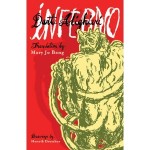
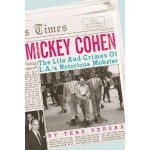

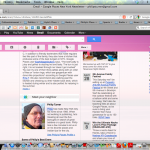


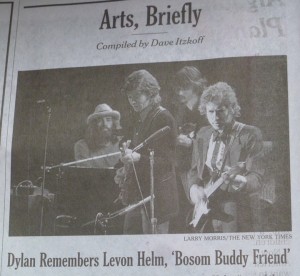
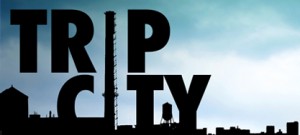
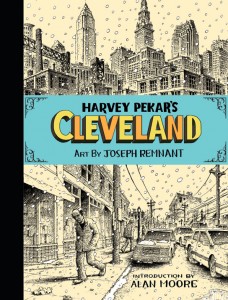

 Via the Guardian comes a lovely memorial by longtime British publisher
Via the Guardian comes a lovely memorial by longtime British publisher